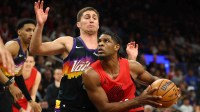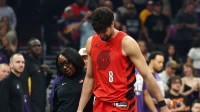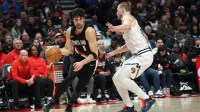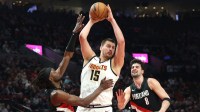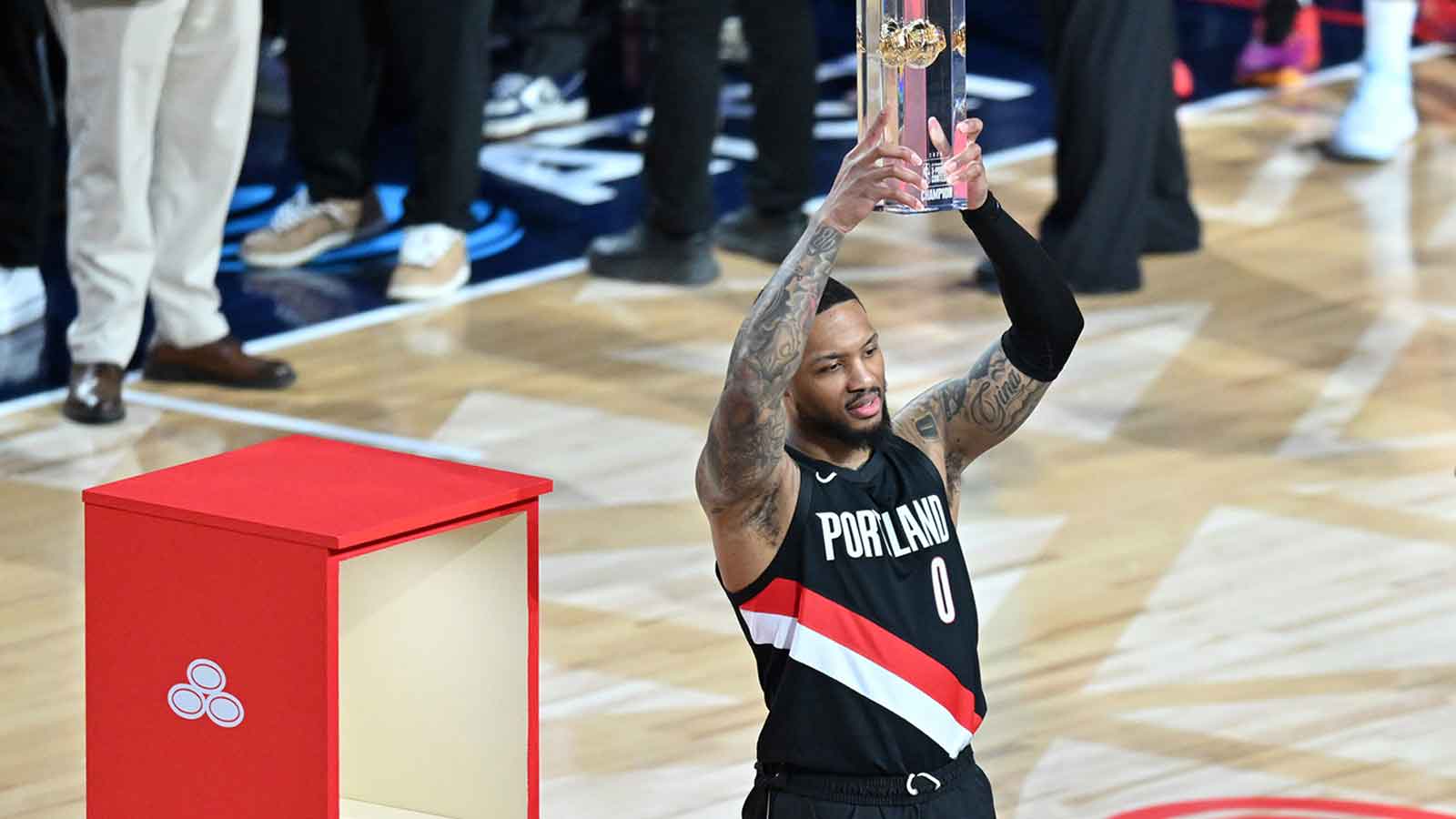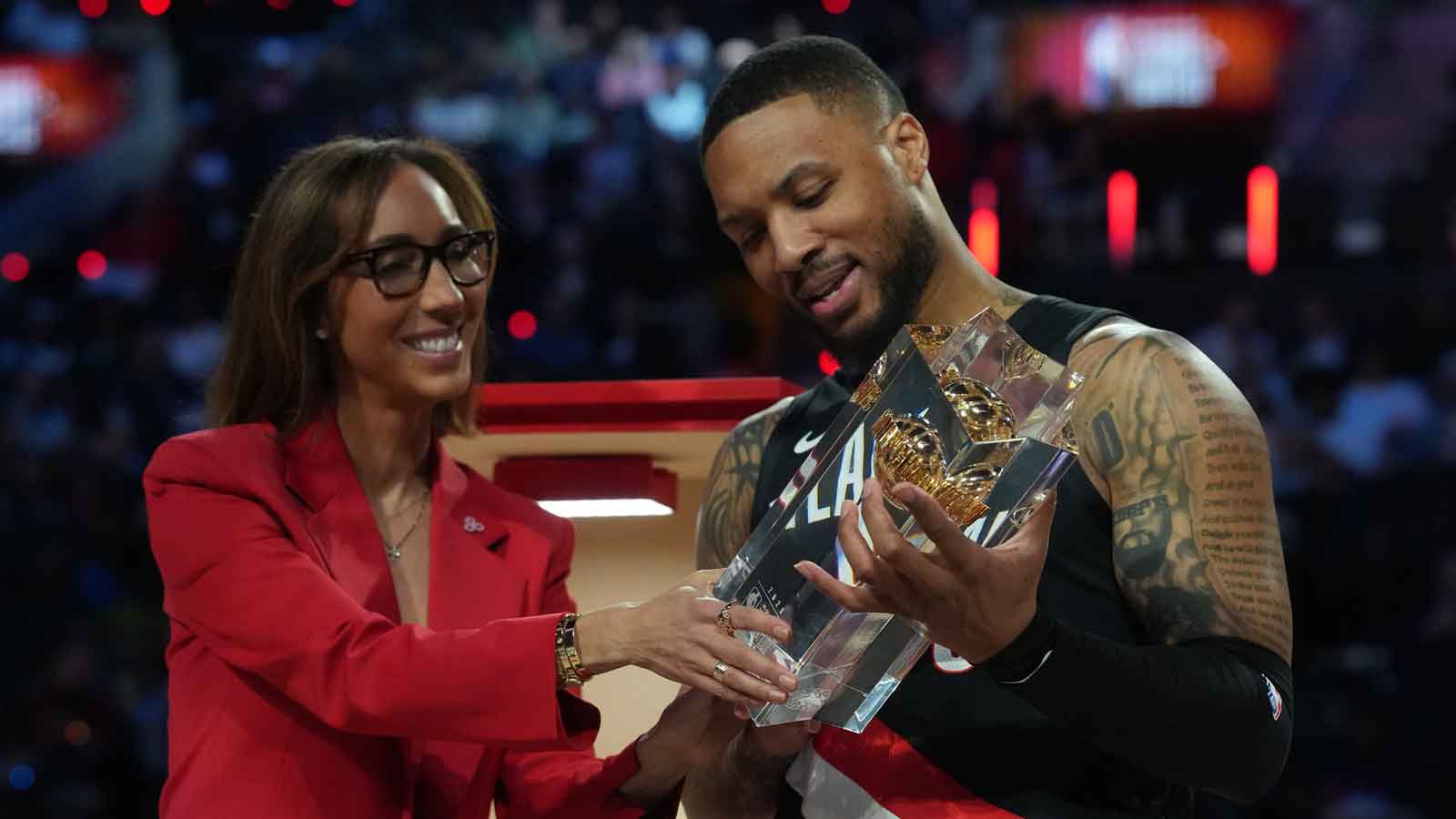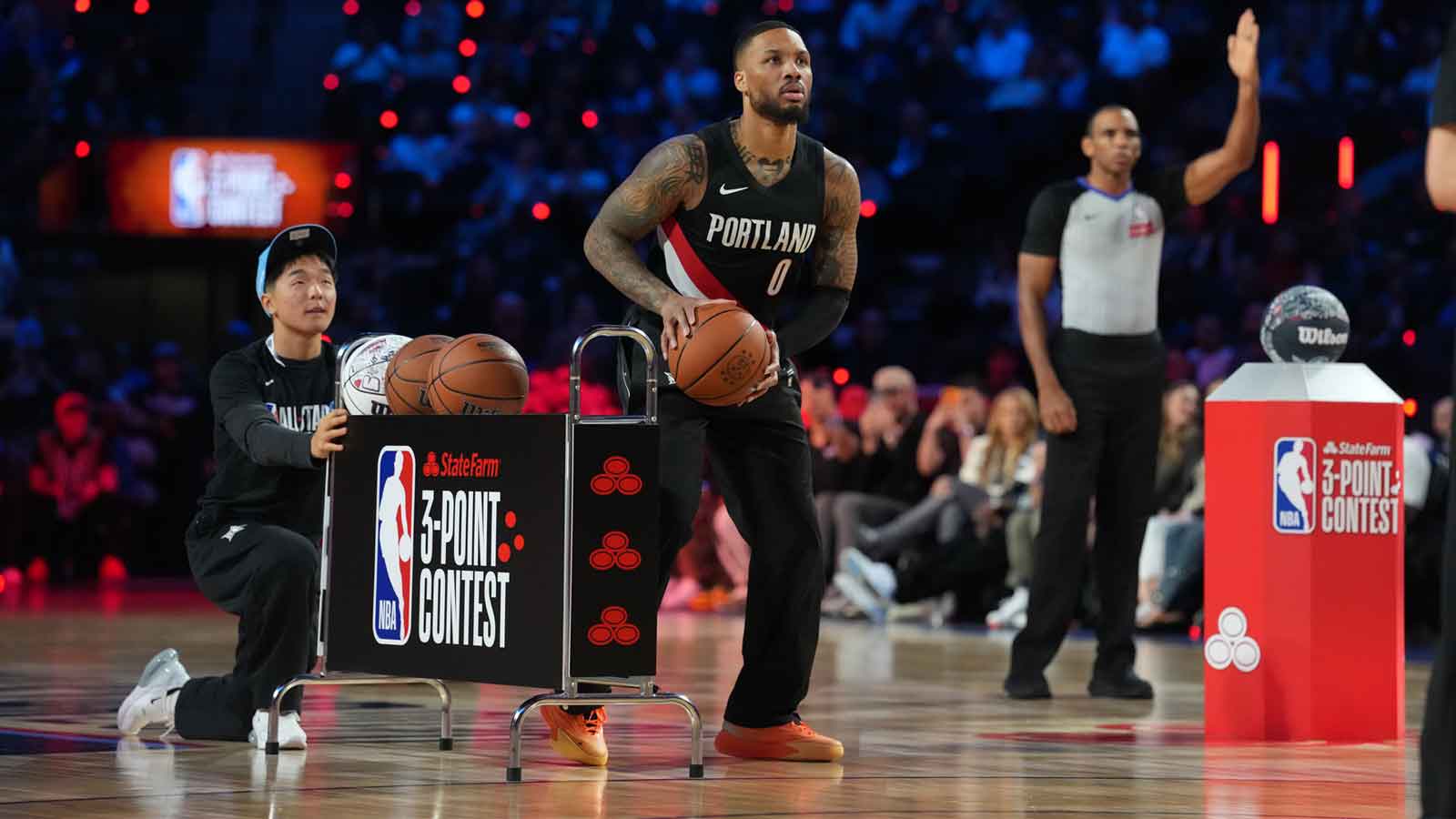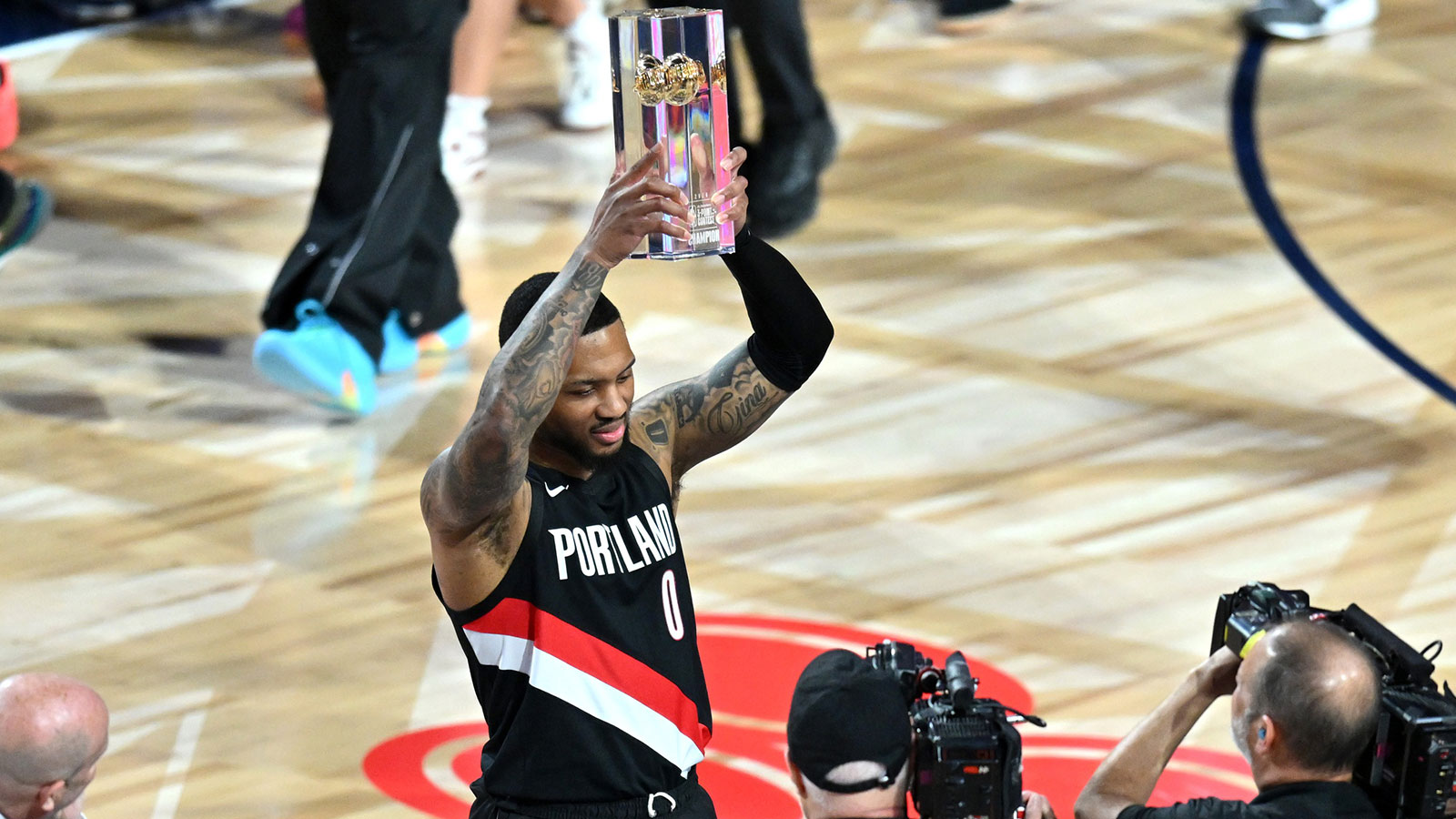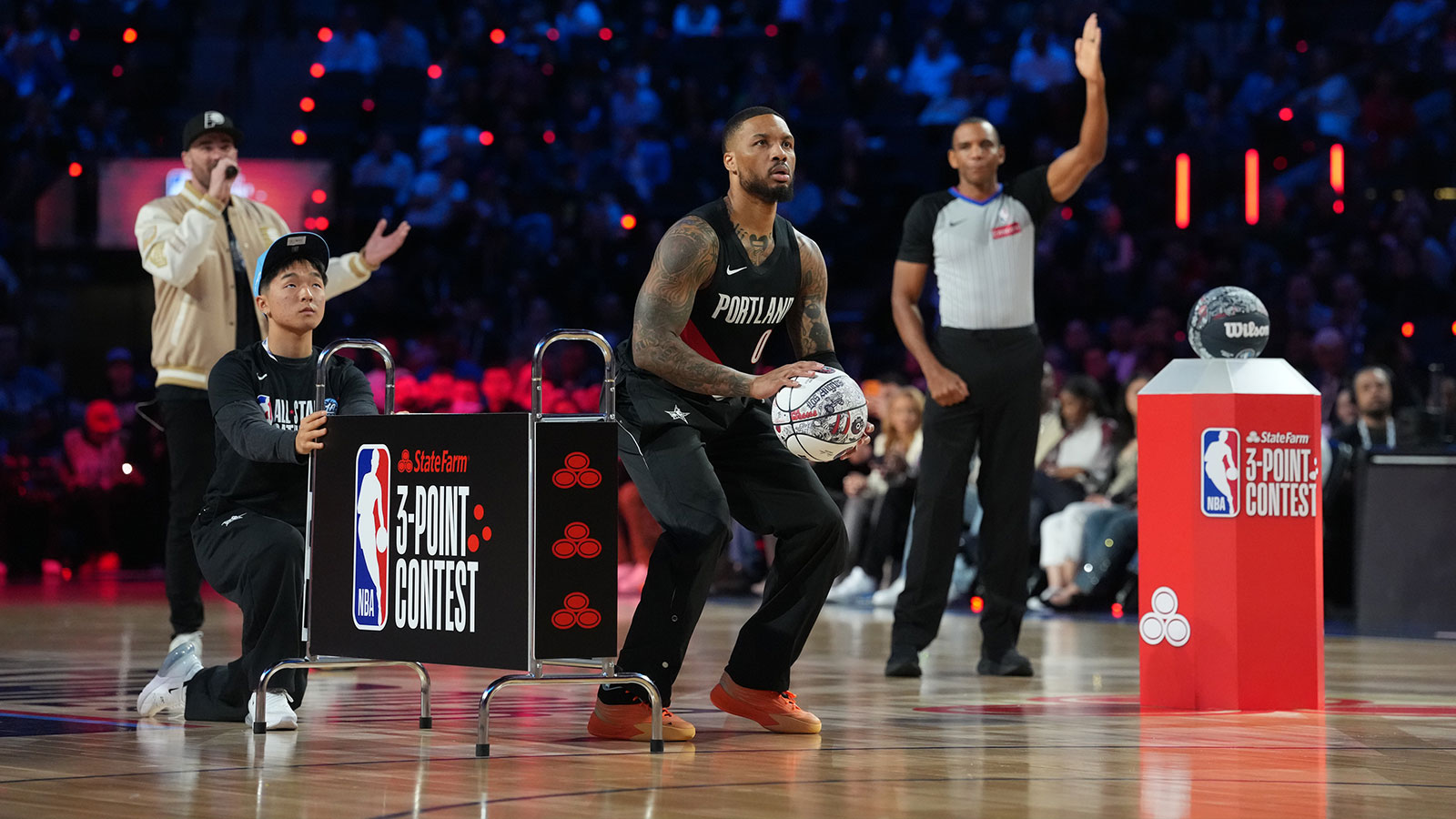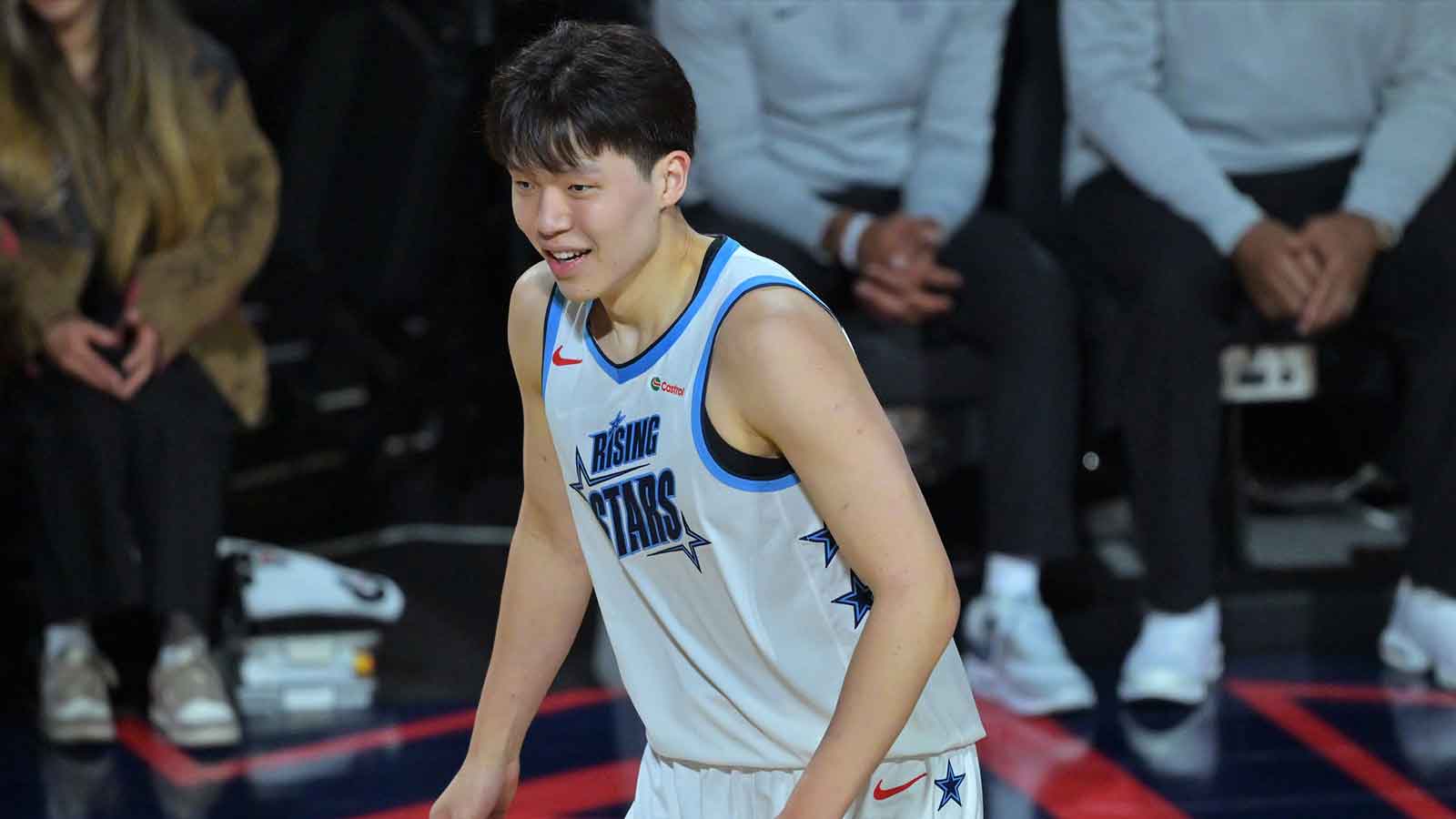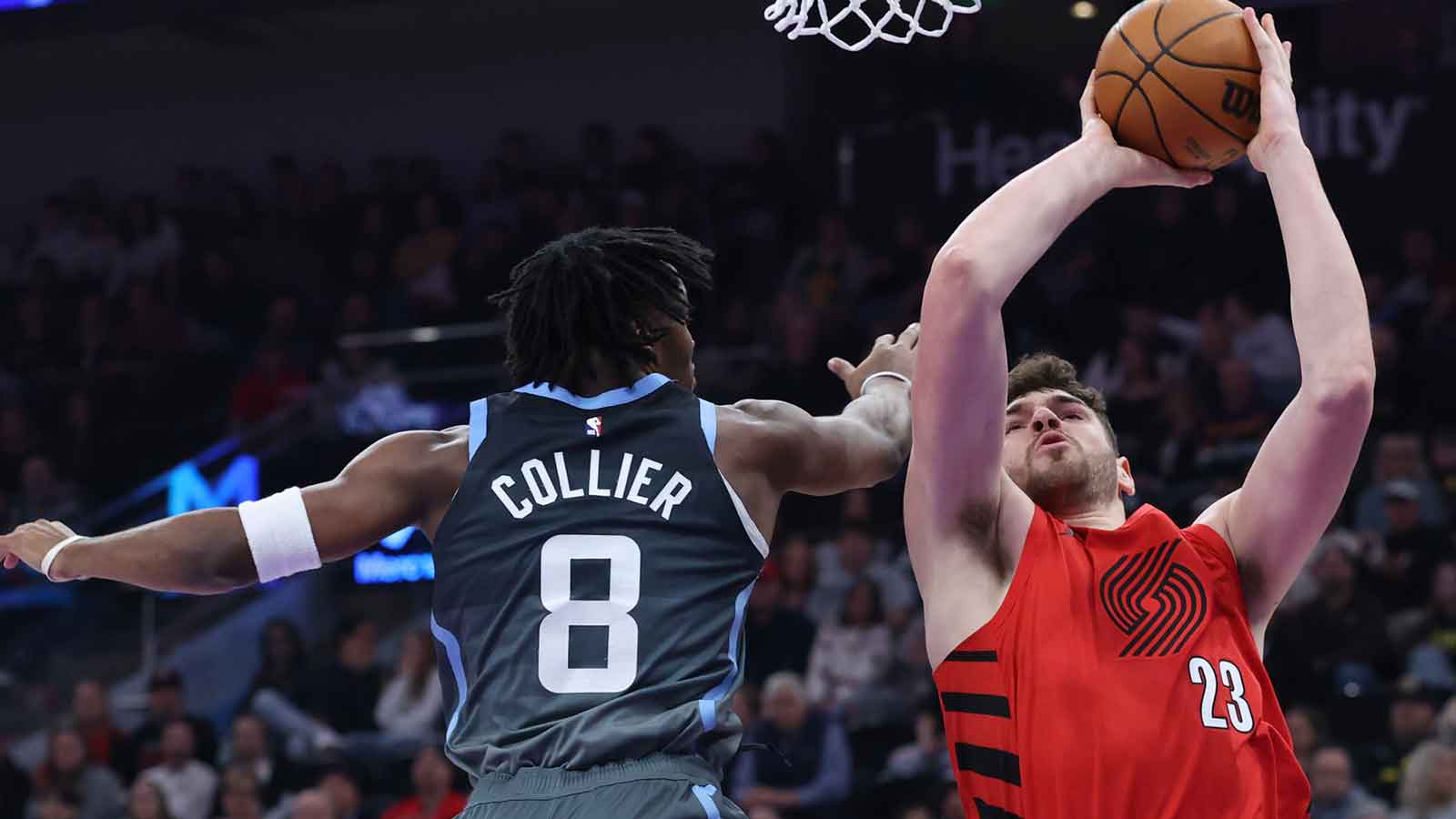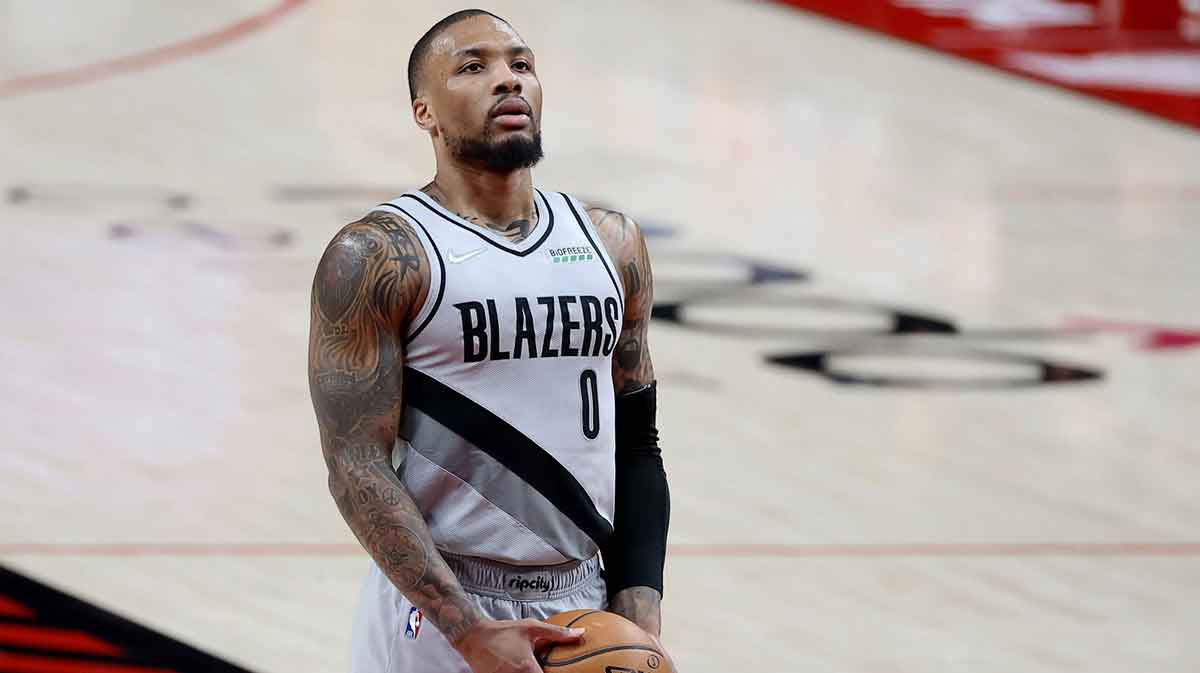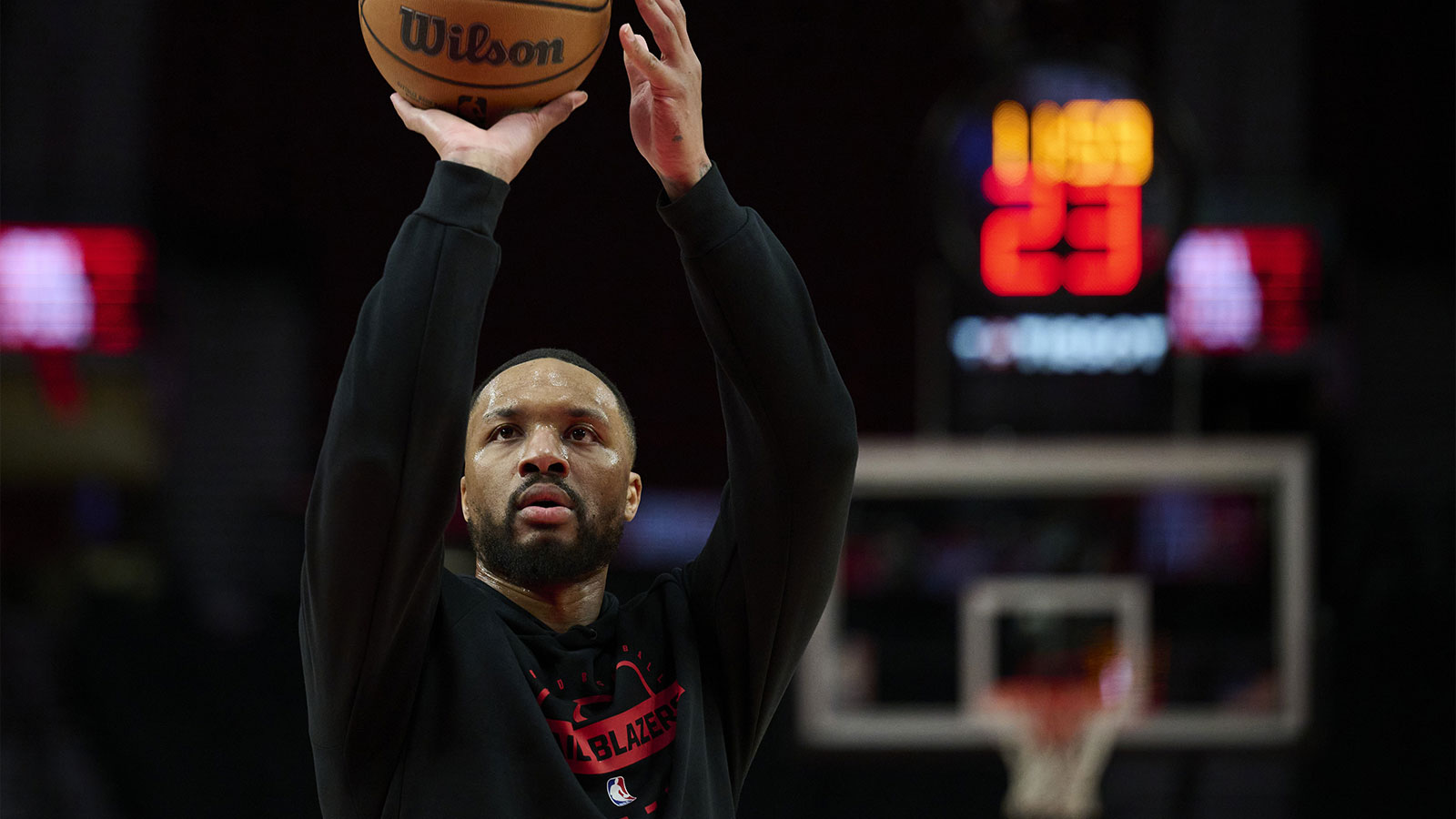Damian Lillard has never made a secret of and has no reason to apologize for a looming desire to maximize his earnings to their utmost extent before his playing days are finished.
Despite increasingly massive annual salaries, all superstars with crossover appeal who single-handedly drive sustained team success are underpaid relative to the revenue they bring in. Last March, Forbes valued the Portland Trail Blazers at a whopping $2.05 billion, over four times its estimated worth when Lillard entered the league in 2012.
His instant stardom, historic late-game heroics and level of consistent individual brilliance that's led his team to eight consecutive playoff berths—the longest active streak in the league—is hardly the sole reason behind the Blazers' burgeoning valuation. Steve Ballmer's $2 billion purchase of the LA Clippers in 2014 completely re-set the market for NBA franchises, while subsequent and forthcoming broadcasting deals with media giants have further burnished the worth of every team in basketball.
Even so, Lillard's fingerprints are all over Portland's success, and he deserves to be compensated for that reality—even if his on-court impact going forward won't perfectly align with the gargantuan amounts he's being paid. But the Blazers' unavoidable crossroads complicates that dynamic, especially in wake of reports that Lillard already has his sights set on another huge payday.
Dame wants his money, and it's already complicating matters for Portland #RipCityhttps://t.co/TDExoBIp0f
— Blazers Nation (@BlazersNationCP) December 7, 2021
According to ESPN's Adrian Wojnarowski, Lillard and his representation have been pushing to sign a two-year, $107 million contract the eight-time All-Star becomes eligible for in late July. That new deal would keep him tethered to Portland through the 2026-27 season, with a 36-year-old Lillard earning $55.3 million—the highest single-season salary in NBA history.
The reasons Lillard is apparently so adamant about inking that extension this offseason are as obvious as they are numerous. Money talks, and Lillard, 31, lamented last month that his prime is currently being marred by nagging abdominal tendinopathy. There's a real chance this summer could be Lillard's last opportunity to sign a multi-year max contract before entering a different stage of his career.
Why Portland would be inclined to re-up Lillard at that massive price point come July is less understandable considering its state of flux.
ESPN reports that prospective candidates to replace Neil Olshey as the team's head decision-maker, unsurprisingly, have blanched at the prospect of affording Lillard that extension. Olshey hardly turned over every stone toward building a title contender around Lillard during his time in Rip City, but not coming close to doing so nevertheless points to an even lesser likelihood of managing that feat in the future.
Lillard has always maintained his ultimate goal is to win a championship with the Blazers, re-committing to it coming into 2021-22 after a summer spent pondering his departure. Raising the Larry O'Brien Trophy isn't as simple as surrounding Lillard with players who better accentuate his strengths and mask his weaknesses, though. Cap constraints have doomed his pairing with C.J. McCollum nearly as much as the folly of constructing an NBA team around two shoot-first, defense-averse guards with limited positional versatility.
Lillard and his camp are reportedly selling interim GM Joe Cronin and the front office on trading core veterans like C.J. McCollum, Jusuf Nurkic and Robert Covington. There's no other logical path available to the Blazers if they're intent on retaining Lillard while re-shuffling the roster and trying to compete. But that behind-the-scenes lobbying apparently comes with the caveat of Lillard anticipating an extension this summer, a development that would significantly hinder Portland's ability to reset its deck long-term.
Portland's dire straits make a trade for Ben Simmons more obvious than ever #RipCityhttps://t.co/sPJqY2nAiG
— Blazers Nation (@BlazersNationCP) December 6, 2021
Even if the Philadelphia 76ers renege on their refusal to accept a trade package built around C.J. McCollum, it's foolish to think a revamped team led by Lillard and Ben Simmons would vault up the championship pecking order. Simmons is a best-case starting point for the series of trades the Blazers should be seeking, too. What seems far more likely once they pick up the phone is Cronin and company being forced to change their perception of what McCollum, Nurkic and Covington could bring back in any deal, then re-evaluating their approach with regard to Lillard's status as a foundational building block.
Proceeding under those terms would be risky for Portland even if Lillard played out the remainder of his existing contract. His trade value could take a real hit if Lillard is in and out of the lineup over the next few months, kept from reaching his prior All-NBA form by discomfort in his midsection. Given Lillard's pointed expectation of tacking another two years and $107 million onto his current contract, though? The Blazers trudging forward with Lillard tied to them through his mid-thirties could prove a weight they're unable to easily shed.
The type of team that would be interested in surrendering promising young players and multiple first-round picks for Lillard a couple years down the line once it again becomes apparent he won't win a title in Portland, for instance, is impossible to fathom. Lillard wouldn't just be trending toward the twilight of his career in that scenario, but still due the entirety of his $107 million extension through 2026-27.
Lillard devolving into that salary-cap albatross for a non-contender isn't a fate he nor the Blazers deserve. As long as his main objective is securing the deepest bag as quickly as possible, the optimal big-picture outcome for both Lillard and his longtime team is an amicable parting of ways. Portland could avoid additional seasons on the treadmill of mediocrity, instantly initiating an inevitable and long-awaited rebuild. Lillard could continue his career by chasing titles for a team that actually has the chance to win them now and going forward, the kind of lasting, tangible incentive that would likely prompt an extension offer come summer.
The Blazers, like all organizations featuring homegrown icons, owe Lillard more than they could ever pay him. Now, that obligation means having the tough yet necessary conversation with the best player in team history about finally finding him a new one.



